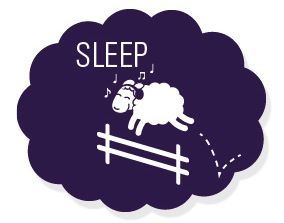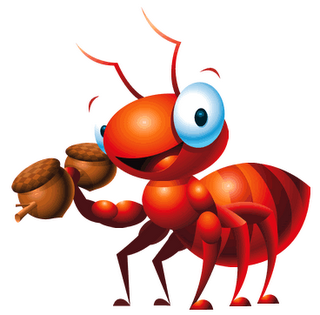"Chelsea?"
I stopped flipping through the magazines and looked up. About time. I stretched out my cramped legs and followed the nurse through a maze of hallways to a room in the back corner. So small, yet so much equipment. There were rows of lenses stored in a red velvet organizer. Everything still familiar from the last time I came here a year ago, I sat down on the plastic green chair.
After a near-sighted vision test and a colorblind test, I heard exactly what I had been dreading.
"We're going to be dilating your eyes today," the nurse said.
Ugh, well might as well get it over with.
I saw her twist open three different colored bottles of eye drops. Two fingers painted bright red approached my eyes. Pinching into my skin, they pried one eye open as I watched the first drop get squeezed in. A burning sensation spread throughout my eye, and I tried to blink away the pain, but another drop fell in before I could. I squirmed with discomfort, my eye begging for relief. Eye drop tears were flowing out of my eyes, but the nurse kept going. She squeezed one drop from the last bottle, but most of it bounced out of brimming pool of eye drops already occupying my eye. The fingers lifted themselves away from my eye, and I shut them as quickly as possible and dabbed at the tears with a tissue.
Still recovering from the experience, I heard a cheerful voice say, "Now the other eye!"
Internally groaning, I lay back down and faced another series of eye drops with the prying fingers. I waited for twenty minutes for my pupils to dilate. Towards the end, my near-sighted vision got so blurry that I just sat around, checking on my pupils every once in a while to see them slowly cover up my irises.
I heard a knock on the door and my doctor walked in. The first  round of tests was reading the letters from the far wall. He gave me a black spoon to cover up my left eye, and turned on the projector. I started to second-guess myself after the fifth line. I switched to my left eye and everything got a little blurrier. Since I just finished reading the letters with my right eye, I didn't forget them now that I'm reading them a second time. So do I just read the letter as "F", the way my left eye sees it, or "E" how I remembered reading it a half second ago? I'll read it as F and hope the doctor doesn't think I have short term memory loss.
round of tests was reading the letters from the far wall. He gave me a black spoon to cover up my left eye, and turned on the projector. I started to second-guess myself after the fifth line. I switched to my left eye and everything got a little blurrier. Since I just finished reading the letters with my right eye, I didn't forget them now that I'm reading them a second time. So do I just read the letter as "F", the way my left eye sees it, or "E" how I remembered reading it a half second ago? I'll read it as F and hope the doctor doesn't think I have short term memory loss.
 round of tests was reading the letters from the far wall. He gave me a black spoon to cover up my left eye, and turned on the projector. I started to second-guess myself after the fifth line. I switched to my left eye and everything got a little blurrier. Since I just finished reading the letters with my right eye, I didn't forget them now that I'm reading them a second time. So do I just read the letter as "F", the way my left eye sees it, or "E" how I remembered reading it a half second ago? I'll read it as F and hope the doctor doesn't think I have short term memory loss.
round of tests was reading the letters from the far wall. He gave me a black spoon to cover up my left eye, and turned on the projector. I started to second-guess myself after the fifth line. I switched to my left eye and everything got a little blurrier. Since I just finished reading the letters with my right eye, I didn't forget them now that I'm reading them a second time. So do I just read the letter as "F", the way my left eye sees it, or "E" how I remembered reading it a half second ago? I'll read it as F and hope the doctor doesn't think I have short term memory loss.
The appointment continued without any other qualms from me. And the usual conversation followed when we finished.
"Your vision has not changed. Here's your prescription. And don't forget your sunglasses on your way  out."
out."
 out."
out."
"Thanks!"
I had been waiting for this moment. These were the rare (and awesome) shades I could only find these at my ophthalmologist's office. They not only had 100% UVA and UVB protection, but they also fit snugly on my face. It was always a great way to end an eye doctor's appointment, feeling invincible as my dilated pupils faced the glaring sun.
 .
. According to Nationwide Children's, in a perfect world adolescents should be getting 9 hours of sleep a night. 9 hours. How do they honestly expect us to do that? Say you want to wake up at 6AM; then you would have to go to bed at 9PM. Many of us have after school activities or sports after school, getting home from 4-7PM, leaving us with around 2 to 5 hours for schoolwork, family time, hobbies, relaxing, and some dawdling in between.
According to Nationwide Children's, in a perfect world adolescents should be getting 9 hours of sleep a night. 9 hours. How do they honestly expect us to do that? Say you want to wake up at 6AM; then you would have to go to bed at 9PM. Many of us have after school activities or sports after school, getting home from 4-7PM, leaving us with around 2 to 5 hours for schoolwork, family time, hobbies, relaxing, and some dawdling in between.


